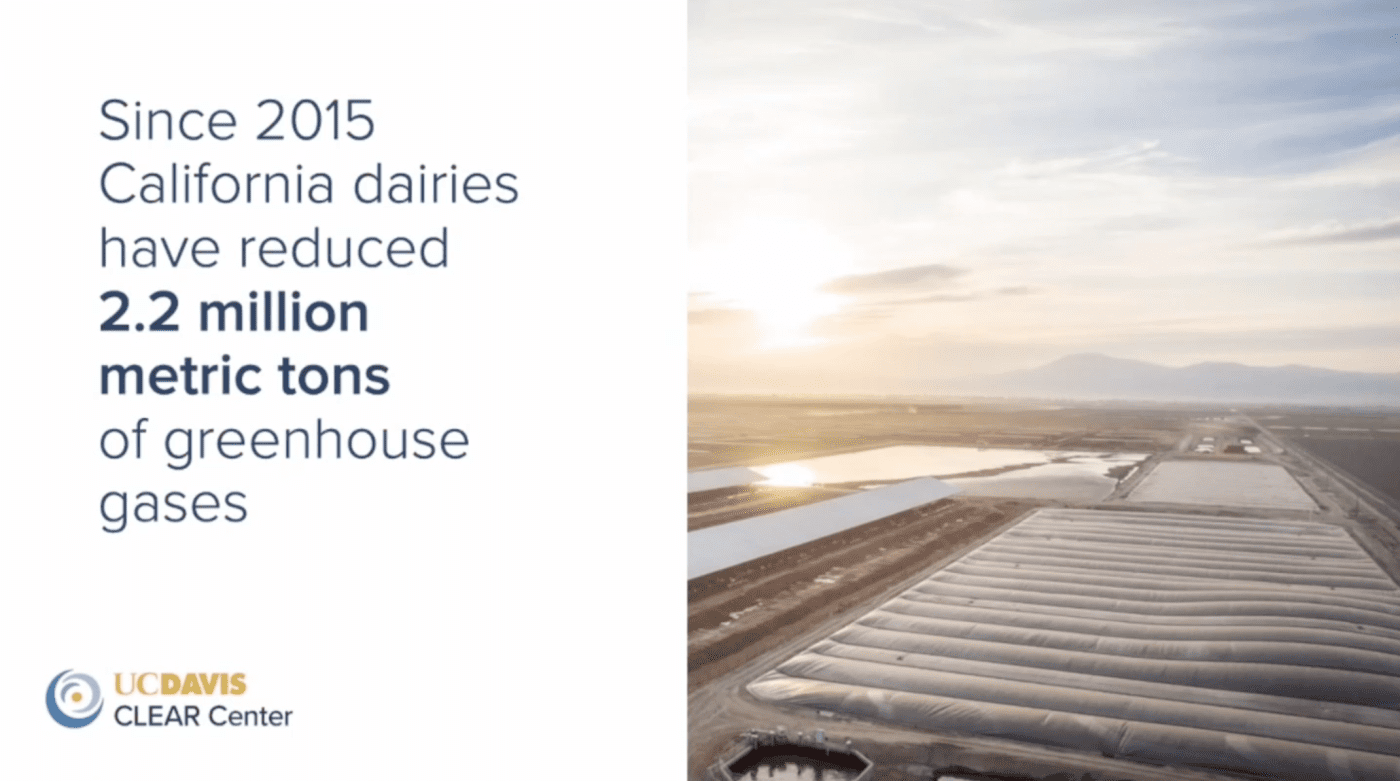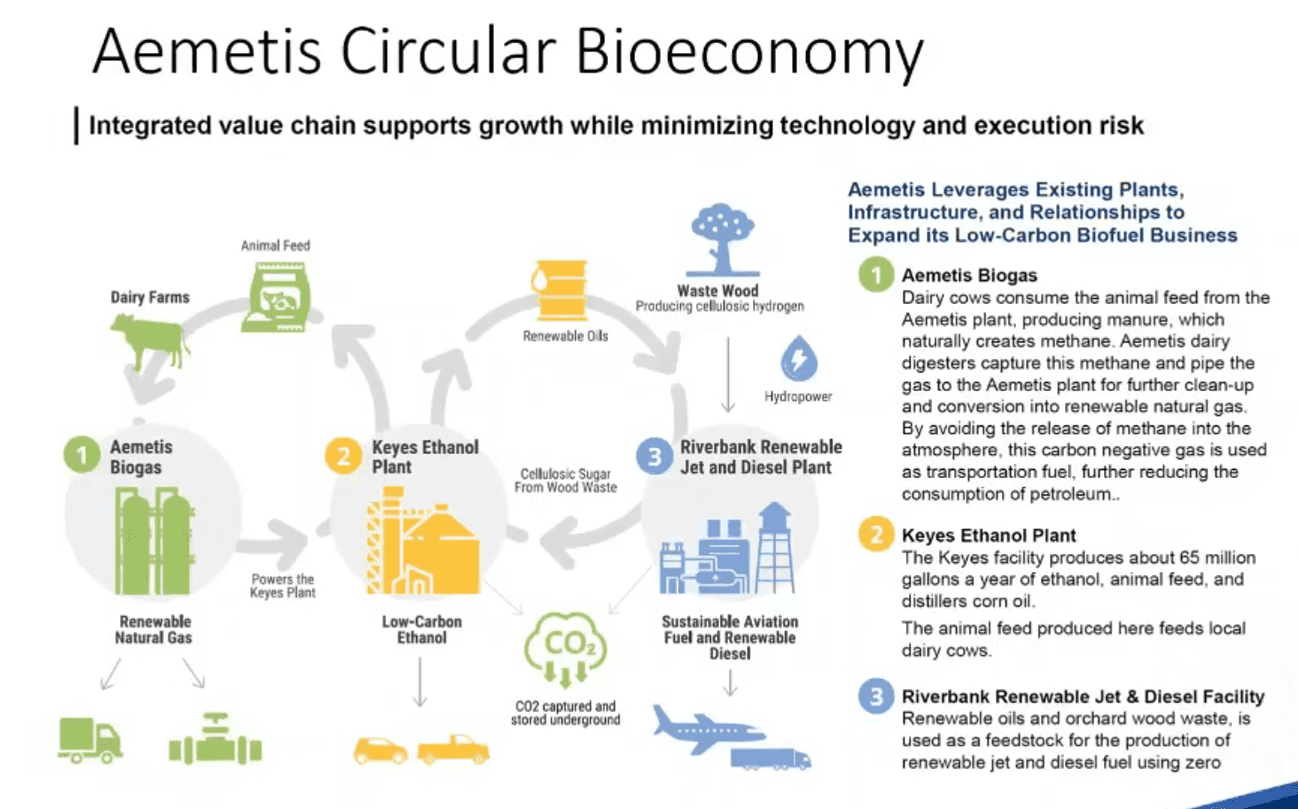WHILE California is best known for Hollywood and Silicon Valley, its intensive livestock sector is significant and has turned itself into a bioenergy powerhouse in recent years.
America’s most populated state has managed to pull together the agriculture industry, energy companies and governments to make manure a viable energy source – primarily powering trucks. The first move towards biogas was made by former governor and Hollywood muscle-man Arnold Schwarznegger.
The scheme is about incentivising energy companies and producers to convert manure-related methane into electricity. The basic idea is to pump effluent into “digesters”, which are essentially covers over ponds that stop discharge of methane into the atmosphere. It is then pumped to a power station, creating fuel for transport and earning carbon credits.
Independent meat market analyst Simon Quilty has been looking into California’s digestors for his Churchill Fellowship studies – which Beef Central has been following. He spoke with Sam Wade from advocacy body Coalition for Natural Gas and Andy Foster from biogas developer Aemetis.
Major investment from companies
Aemetis is a specialist biofuel company, which also makes aviation fuel and diesel from waste wood and ethanol from corn – with its by-products fed to cattle.
The company is one of many working in California and planned to invest about US$380m into digesters and pipelines – with each digester costing about US$3m and US$4m and the company owning pipelines and power station.
Mr Foster said economies of scale was important and farmers needed a minimum of 2000 milking cows to make the investments viable. He said the market for carbon credits was one of the main factors behind the payback period.
“When the carbon price in California is over US$100 we can do a pretty quick return. But over the last couple of years the state has been re-evaluating the program, which has caused some hesitation and the price has gone down,” he said.
“But scale is important because it is much less expensive to use other methods of methane capture, lake landfills.”
Mr Foster said the company paid for all the infrastructure and allowed the dairies to use the manure and water after the process. He said the program was also important for the economic sustainability of Californian agriculture.
“If you look at dairy farmers, the price of milk fluctuates and having another income stream is important,” he said.
“We essentially rent the manure from them because it sent back to their farms for fertiliser. There is also a carbon credit side of it where they share in the upside of the carbon market increasing. As the market goes down we protect them as well because there is essentially a floor price – they can take that to a bank and get loans against.”
Could feedlots follow dairy?
At this point, California’s program is based on dairy farms and Mr Quilty asked whether is could be used in feedlots. Mr Wade said it depended on manure handling practices because the process of putting manure into water caused the biggest discharge of methane.
“The way California has approached this is about setting a baseline of emissions for each farm and comparing it to the reduced emissions after the project was built,”
“In the case where you have a lot of liquid handling of manure you have a higher baseline and more incentive to clean up your emissions. If you have a dry lot where you have animals spread far apart and non-liquid handling of manure, your baseline may not be as high which effects the economics.
“You still can gather that dry manure, put it in a digester and make gas which is a productive thing to do.”
Policy settings
California has set a target of taking 12 percent of methane gas requirements from renewable sources – which is otherwise known as “green methane”.
The state has also introduced a “low carbon fuel standard” whereby fuels like green methane earn carbon credits and companies producing high-carbon fuels like conventional petrol or diesel need to offset their emissions.
Mr Wade said the policy was about providing a market solution to reducing emissions and has been very successful.
“Interestingly it was a Republican governor, in Arnold Schwarznegger, who took leadership in trying to find a market-based solution to reducing emissions,” he said.
“It turned out to be one of the best policies the state has done because it was attractive to both sides of politics. It achieved an environmental objective which was popular on the left and doing so in a way that was very friendly to business and motivated smart deployment of capital which was popular on the right.”
Asked about the future of the policy and if potential changes in government could threaten it, Mr Foster said any policies focusing on shifting away from fossil fuels were going to be popular in a state like California.
“California is basically a one-party state, The Democrats control most levels of government and most of the population is concentrated along the coastal area – away from these farms inland,” he said.
“Inland, where the agricultural industry is, does not have as many people. So from a political perspective, it is less likely for us to have changes of government. Once these policies are set in, it really hard to undo them.”
Avoiding leakage
One of the concerns often raised with environmental legislation is a concept called “leakage”, where companies in other jurisdictions do not have the same rules to comply with and gain a competitive advantage – often causing companies to move away.
Mr Wade said California had avoided a mass migration of farmers out of the state by taking more of a “carrot” than a stick approach.
“If there was an onerous mandatory requirement for dairy farmers to install technologies that reduce methane emissions than I think at least some farms would move a share of their herd to other states that don’t have those requirements rather than just comply,” he said.
“By paying folks for their environmental improvements and for their production of renewable foods we have avoided that. They have been successful in showing that they can do sustainable dairy farming in California and we hope it serves as a model for other states to follow.”
Mr Foster echoed the same sentiment and said farmers were likely to move if the regulations become too onerous.
“If the regulators get too cute, you could see a dairy farmer say the economics don’t stack up and go to Texas or Idaho,” he said.
“All that happens then, is that you are moving the methane across the border.”
Advice to Australia
Asked about the potential of having a similar system in Australia, Mr Foster said it was definitely possible, but required a concerted effort from all stakeholders.
“Anaerobic digestion has been happening in Europe for a lot longer than the United States and it is popular in many countries over there,” he said.
“Agriculture is big in most places and there are opportunities that exist. If you look at the successes and failures, and there has been a bit of both, I think these policies can be replicated.
“You need to have everyone represented at the table and you need to make sure everyone feels like their opinion is being heard – I would also say you should try and eliminate the extremists from the room because the majority of people are in the middle.”
Mr Foster said building a biogas industry like California’s takes a lot of time and capital, which required patience.
“Don’t feel like you have to conquer the mountain in the first or second year. Even though emissions are a pressing problem, the danger is trying to do too much too quickly and failing,” he said.
“There is a real possibility that we try taking on too much. But this type of policy can lead to more development as long as the government continues to show support and provides incentives because this stuff is capital intensive.”


